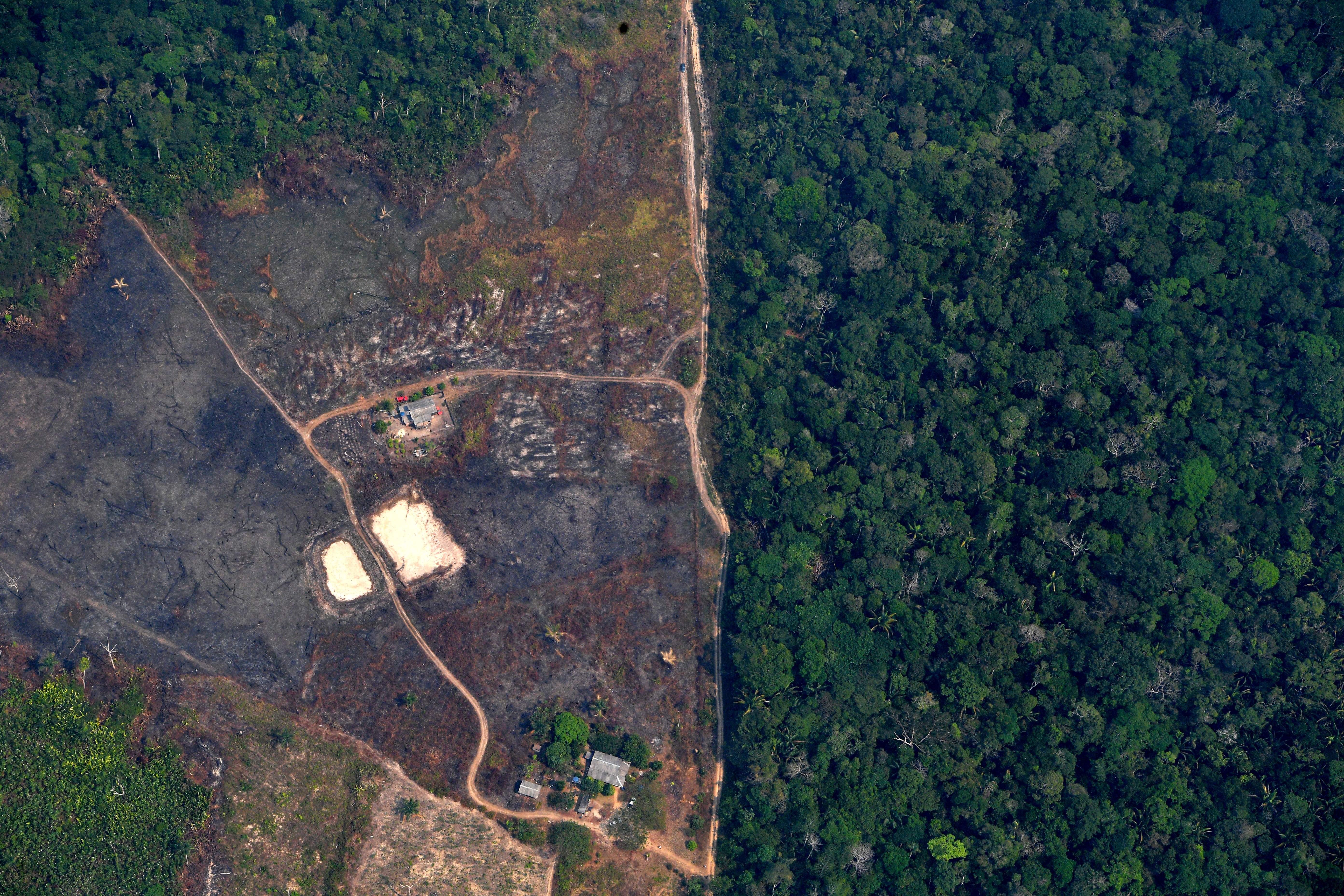EU biofuels goals behind deforested area as big as the Netherlands
Warning efforts to replace more polluting fuels with biofuel may inadvertantly be ‘wrecking planet’

Your support helps us to tell the story
From reproductive rights to climate change to Big Tech, The Independent is on the ground when the story is developing. Whether it's investigating the financials of Elon Musk's pro-Trump PAC or producing our latest documentary, 'The A Word', which shines a light on the American women fighting for reproductive rights, we know how important it is to parse out the facts from the messaging.
At such a critical moment in US history, we need reporters on the ground. Your donation allows us to keep sending journalists to speak to both sides of the story.
The Independent is trusted by Americans across the entire political spectrum. And unlike many other quality news outlets, we choose not to lock Americans out of our reporting and analysis with paywalls. We believe quality journalism should be available to everyone, paid for by those who can afford it.
Your support makes all the difference.European Union targets to boost biofuel use are likely to have led to the deforestation of an area roughly the size of the Netherlands over the last decade to expand soy, palm and other oil crops, a report said on Monday.
About 4 million hectares (9 million acres) of forests mainly in Southeast Asia and South America have been cleared since 2011 - including about 10 per cent of remaining orangutan habitat, according to estimates by campaign group Transport and Environment (T&E).
That suggests efforts to replace polluting fuels such as diesel with biofuels are paradoxically increasing planet-warming carbon dioxide emissions, said Laura Buffet, T&E’s energy director.
“A policy that was supposed to save the planet is actually wrecking it,” she said. “We cannot afford another decade of this.”
The report analysed biodiesel production and consumption data from three statistical and market analysis agencies - Oil World, Stratas Advisors and Eurostat.
It found that EU demand for biodiesel required the cultivation of 1.1 million hectares (2.7 million acres) of palm in Southeast Asia and 2.9 million hectares (7.2 million acres) of soybeans in South America.
An EU spokesperson could not immediately be reached to comment on the report.
Hit by criticism of deforestation linked to palm oil use in biodiesel, the EU agreed in 2018 to phase out the use of palm oil in transport fuels by 2030.
But a resulting surge in the use of soy oil in European biodiesel is now threatening to displace deforestation from Southeast Asia to South America, the researchers noted.
Soy oil used in biodiesel production spiked 17 per cent in 2020, while palm oil volumes rose just 4.4 per cent, the report’s data showed.
Since 2018, soy oil in European energy systems has risen from 34 per cent of the total soy oil consumed in Europe to 44 per cent, solely because of biodiesel, the report said.
“This trend is troublesome because soy could easily become the new palm oil,” researchers noted.
Soy has slightly lower emissions from field to wheel than palm oil - but these are still twice as high as emissions from diesel when direct and indirect forest loss are taken into account, the study said.
Expanding soy cultivation is a major cause of rapidly rising deforestation in the Brazilian Amazon and other critical ecosystems, which is accelerating climate threats as carbon-absorbing trees disappear, scientists say.
If the EU maintains its current biofuel policies, it will emit an extra 173 million tonnes of climate-changing carbon dioxide from palm and soy by 2030, the report said - as much as 95 million extra cars on the road in one year.
In 2020, diesel and petrol use in Europe fell by 8.3 per cent and 11.6 per cent respectively as Covid-19 pandemic lockdowns slowed travel and business, the T&E report noted.
But biodiesel use rose 1.3 per cent in 2020, in line with an EU mandate for a 10th of transport fuels to come from renewables by 2020, the report said.
The EU aims to get about a quarter of its transport fuel needs by 2030 from renewable sources including e-fuels, hydrogen and advanced biofuels made from wastes and residues.
Up to 5.1 per cent of that figure could come from crop biofuels, according to an analysis by the European Commission.
A final decision on the increase is expected on 14 July as part of a long-awaited EU climate package.
Thomson Reuters Foundation
Join our commenting forum
Join thought-provoking conversations, follow other Independent readers and see their replies
Comments